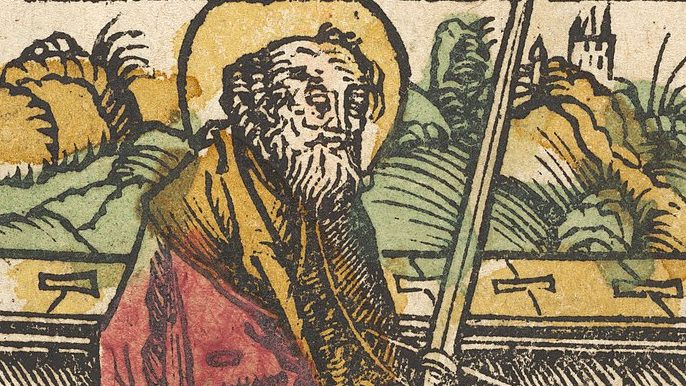Around this time every year, my mind returns to the island of Crete. Around a dozen years ago I led a pilgrimage there, in the midst of a cruise “in the footsteps of St. Paul.”
There’s no detailed scriptural account of the apostle’s visit there. All we know is that he “left” his disciple Titus on Crete (Titus 1:5), ordaining him to lead the Church there. He had surely “laid hands” on Titus, as he had on Timothy (2 Timothy 1:6). Both men had received the grace of holy orders, and then they lived up to it. Thus we honor them together on the feast they share, January 26.
In a letter to Titus, Paul aims an insult at the people of Crete: “Cretans,” he says, “are always liars, evil beasts, lazy gluttons” (Titus 1:12).
Ouch. That hurts, even after 2,000 years. But Paul was quoting a Cretan poet when he said it.
The poet’s name is Epimenides — a pagan! —and Paul actually quotes him more than once in the New Testament. He even refers to him as a prophet.
Epimenides was a semi-mythical, semi-historical figure who lived on Crete in the sixth or seventh century before Christ. He was a shepherd who one day, according to legend, fell asleep in a cave and awoke 57 years later. He emerged transfigured, filled with supernatural gifts. His fame spread far, even to Athens, some 214 miles away.
Athenians, centuries later, remembered Epimenides for delivering their city from a curse. They had been suffering from a series of calamities, so they called upon the poet-prophet for help. He suggested that perhaps there was a god yet unknown to them, who would be willing and able to help if appropriate sacrifices were offered. So the people of Athens built altars to this nameless deity all over the city, and the legacy of Epimenides in Athens was an aggregation of altars dedicated “to an unknown god.”
Paul spoke about such an altar when he was preaching in the city (Acts 17:23).
In the same speech, Paul also quoted one of the poems of Epimenides. The poem said of a certain god: “In him we live and move and have our being” (see Acts 17:28). Paul apparently saw this line as a prophecy of the divine life that Christians experience through baptism.
His citation is no happenstance. In fact, the line comes from the same poem from which he drew the insult that appears in his Letter to Titus. He knew the poem well.
And he knew well what he was doing when he left Titus on Crete. Paul gave the island something better than the legendary Epimenides. He gave the Cretans a priest after the image of Jesus Christ. He gave them a bishop who would lead them away from lying and gluttony — a saint they would honor forever. When I visited his church in Crete, I saw his relics encased in silver.
Now his feast is upon us. We’re not in Crete, but we can invoke his intercession. Please join me in doing so.

